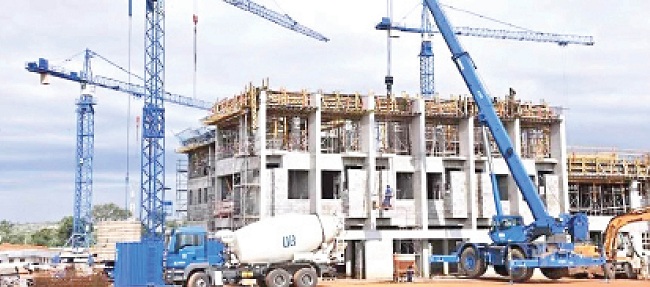ENERGY demand and emissions from the building and construction sector represent over a fifth of global emissions. In 2022, a one per cent increase in the sector’s emissions was equal to 10 million more cars circling the Earth’s equator. At the same time, the sector’s energy intensity dropped by 3.5 percent.
These are key findings of a report published by UN Environment Programme (UNEP) and the Global Alliance for Buildings and Construction (GlobalABC) on March 7.
The Global Status Report for Buildings and Construction tracks progress and outlines recommendations for governments, industry, and civil society towards a zero-emission, efficient, and resilient buildings sector by 2050. It was published on the first day of the Buildings and Climate Global Forum in Paris.

The report finds that in 2022 the sector accounted for 37 percent of global operational energy and process-related CO2 emissions, rising to just under 10 Gt CO2. Its energy consumption reached 132 exajoules, more than a third of global demand.
“There is no credible path to address climate change without a fundamental shift in the building and construction sector,” said Inger Andersen, UNEP Executive Director.
“Half of buildings that will exist by 2050 have not yet been built. This is a major opportunity for the sector to reimagine the buildings of the future – buildings that prioritise resilience, renovation and reuse, renewable energy generation and low carbon construction, all while addressing social inequalities. Now is the time for governments and industries to follow up on COP28 promises and deliver real-word emission reductions through a true buildings breakthrough.”

The first global stocktake report indicated that to achieve the goals set out in the Paris Agreement, deep, rapid and sustained reductions in greenhouse gas (GHG) emissions will require ‘Tripling renewable energy capacity globally and doubling the global average annual rate of energy efficiency improvements by 2030.’

The building sector has a key role to play: Energy intensity in the building sector would have to drop by 37 per cent from 2015 levels by 2030. While 2022 saw a modest reduction, it remained 15 per cent above the target trajectory.
In 2022, renewable energy’s share in buildings’ final energy consumption was only six percent, significantly behind on progress needed to reach the 18 percent target by 2030.
The cumulative investment in energy efficiency and high-performance buildings should have been 40 percent higher, totalling USD 2.7 trillion.
Overall, investment in decarbonising buildings rose in 2022 by 14 percent to USD 285 billion, largely thanks to the US and European response to energy insecurity. Yet it fell short of net-zero targets for 2030 and 2050 and investments have likely declined in 2023 to USD 270 billion, though energy efficiency investments help mitigate both risks to exposure to energy cost volatility and GHG emissions.
A key reason for last year’s decrease in energy intensity per metre is the 81 countries with building energy codes. At the same time, 2.4 billion square metres of floor space – an area equal to Spain’s entire building stock – were added in 2022 in countries without any building energy codes. Eighty percent of floor area growth expected by 2030 is expected in low-income countries that lack stringent building codes.
Climate Action Roadmaps for the sector can accelerate decarbonisation through collaboration of policymakers, private companies, and NGOs on incorporating material efficiency strategies, low-emission design and technologies, electrification, and renewable energies. Over 15 national and regional buildings and construction roadmaps have been facilitated with the GlobalABC, with 34 countries adopting strategies for decarbonising the building sector.
The report calls on all countries to develop similarly ambitious and comprehensive Climate Action Roadmaps for the sector by 2030 and use them in submitting and revising a new cycle of national climate action plans (NDCs).
Read Also: Insecurity: FCT minister, Police commissioner meet senators








